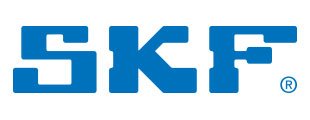There is an ever-growing need for faster, more efficient production methods and manufacturers are striving to find the perfect balance between product quality and affordability and to deliver within the shortest possible lead times, while acknowledging the environment.
This quest, amongst other factors, has given rise to the fourth industrial revolution which sees manufacturers adopting the latest automation and digitalisation technologies to streamline their production processes.
SKF, always at the forefront of innovation, started the digital transformation of its Göteborg plant in Sweden in 2015. The bearing and rotation technology specialist is addressing every aspect within the digital revolution space in order to arm its facility with the necessary capabilities for the seamless, efficient, cost-effective, safe and eco-friendly production of bearings of exceptional quality.
With process fluidity a key factor in SKF’s digital transformation, the company has also turned its attention to enhancing control over its production and operating systems through the constant monitoring of equipment used in the manufacturing process.
Combatting unexpected machine failures is essential to reduce the risk of production downtime with subsequent massive costs incurred as a result of production losses, decreased productivity and critically, long lead times.
SKF therefore took the decision to adopt a digital predictive maintenance approach to ensure a continuous process flow. SKF has created an innovative network of wireless sensors to precisely and continuously monitor the most critical machines.
The sensors which are inside an IMx-8 box capture and analyse data from the industrial equipment in real time and alert operators of any problems to avert costly equipment failures. Monthly production halts are now a thing of the past; intervention is done in a graduated way every two or even three months without greatly affecting work flow.
SKF has developed a nomad solution called QuickCollect to monitor the remaining machines. This portable sensor, which is the size of a mobile phone, can be fixed to strategic points on certain PLCs (Programmable Logic Controllers), making it possible for anyone to monitor machine health without the need for extensive training or diagnostic expertise. Results such as temperature, rotation speed and vibrations are displayed directly on the operator’s mobile phone.
Combining an easy-to-use sensor with mobile apps, machine condition can be quickly and easily identified and inspection, process and machine health data can be shared company-wide. These latest-generation sensors developed by SKF gather new forms of data such as impact detection and provide advanced levels of information which in the past operators were unable to access.
To further improve flexibility, SKF has also introduced processes to simplify machine configuration that speeds up switch-over between tasks. Re-initialisation on the old lines, which required between four to eight hours, has today been reduced to around one hour. SKF expects this process to eventually be immediate.
SKF is exploring new data processing algorithms and artificial intelligence to assist in the early detection of failures. In the future, massive amounts of data will be gathered and saved either locally or in the cloud according to how urgently the data is needed.
To ensure optimum use of the data and to meet pre-set goals, it will be important to determine what information must be processed.
The training of operators will be imperative so that they can understand the complete architecture to establish if, for example, a failure comes from the network, the MES (Manufacturing Execution System), or higher up. The responsibility will fall on the upskilled operators to initiate the correct procedures.
SKF’s digital transformation has already seen the replacement of the Göteborg plant’s four conventional production lines (each line was only able to manufacture one bearing type), with a single, almost completely automated 4.0 production line that can deal with different bearing sizes and selections.
SKF’s digital revolution encompasses a range of solutions including industrial robots and AGVs (Automatic Guided Vehicles).



